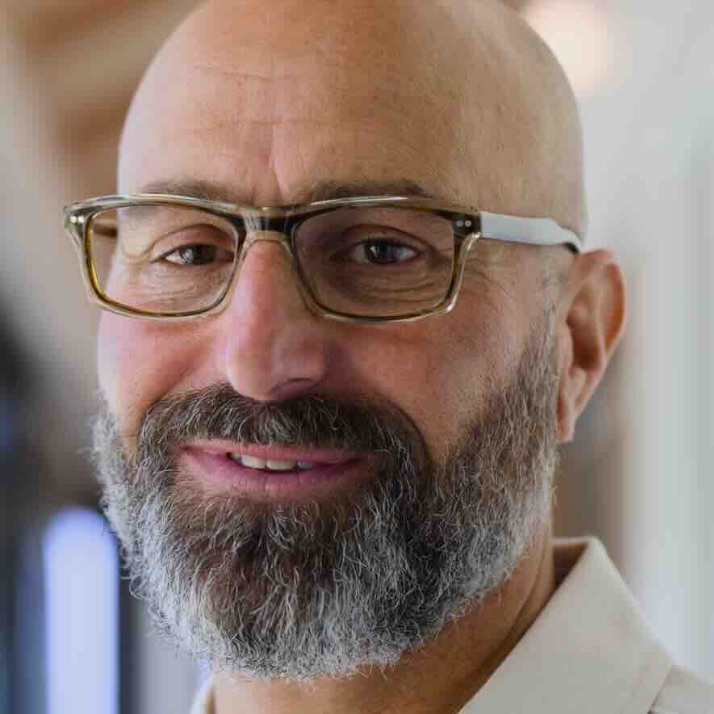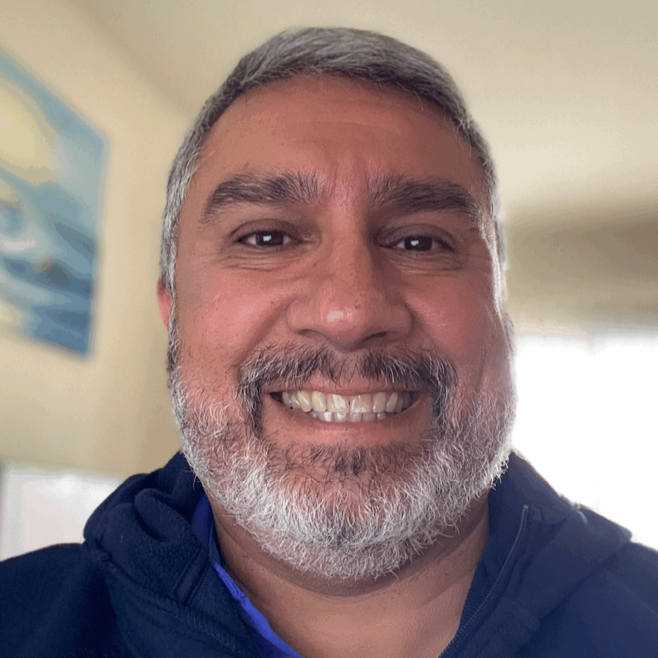Everyday Impact of Sex Addiction
Sex addiction can creep into everyday life, like sneaking off to check explicit apps during a Zoom meeting or while stuck on 101, and then feeling distracted or guilty the rest of the day. It can strain relationships—canceling dinner in Santana Row, hiding browser history, or lying to a partner and feeling the distance grow. You might skip a Sharks game with friends, miss a class at SJSU, or spend more than you can afford, then wake up anxious and ashamed. If this is your reality in San Jose, you’re not alone, and support can help you reclaim your time, work, and connections.
How to Recognize Sex Addiction
- Persistent, hard-to-control sexual thoughts or urges that take up a lot of time, even during work or classes in San Jose’s busy tech and college scene.
- Repeatedly engaging in sexual behaviors (online or in person) despite negative consequences, like strained relationships, money problems, or trouble at work.
- Difficulty cutting back or stopping, with secrets, lies, or double lives—such as hiding apps, browser history, or meetups around places like downtown or Santana Row.
- Using sexual activity to cope with stress, loneliness, or anxiety—after a long commute or high-pressure deadlines—followed by guilt or shame.
- Escalating behaviors to get the same relief, spending more time scrolling late at night or seeking riskier situations that feel out of character.
- Skipping responsibilities or social plans (gym, family events, classes) in the South Bay to pursue sexual activity, and feeling distressed about the loss of control.
Contributing Causes and Risk Factors
Sex addiction can stem from biological factors like genetics, brain reward circuitry, and neurochemical imbalances that intensify cravings and compulsive behavior. Psychological contributors may include past trauma, anxiety or depression, attachment wounds, and difficulties with impulse control or coping. Environmental influences in San Jose—such as high stress, fast-paced tech culture, isolation, and easy online access—can also increase risk. This condition is multifactorial; it’s not a personal weakness, and compassionate support can make recovery possible.
Treatment and Recovery Options
Evidence-based care for sex addiction in San Jose includes cognitive behavioral therapy (CBT) to identify triggers, restructure unhelpful thoughts, and build relapse-prevention skills. Acceptance and Commitment Therapy (ACT) and mindfulness-based relapse prevention help people tolerate urges and act in line with personal values. Motivational Interviewing strengthens commitment to change, and couples therapy can rebuild trust and communication where relationships are affected. When appropriate, medications such as SSRIs or naltrexone may reduce compulsive urges alongside therapy. These approaches are well-studied and can meaningfully reduce symptoms and restore daily functioning.
San Jose offers robust support to put recovery into action, including certified sex-addiction therapists, intensive and outpatient programs, and referrals through Santa Clara County Behavioral Health Services. Local peer groups like Sex Addicts Anonymous (SAA), Sex and Love Addicts Anonymous (SLAA), and SMART Recovery hold meetings across the city and Silicon Valley, with many virtual options. Practical self-help strategies include using accountability partners, installing blocking/monitoring software, structuring routines, practicing mindfulness, journaling, and regular exercise and sleep. Partners and family can join support groups to strengthen the recovery network. Help is available now, and taking the first step to connect with care in San Jose can start your recovery today.
Why Professional Guidance Matters
Sex addiction is complex, and working with a licensed clinician ensures evidence-based care, clear treatment plans, and accountable, ethical practice. Licensed providers can offer secure telehealth sessions and help you navigate insurance coverage to reduce costs. Licensure is critical because it verifies training, adherence to standards, and ongoing supervision for quality care. MiResource helps people in San Jose quickly filter for licensed, in-network providers—including those offering telehealth—so you can find the right fit faster.
Where to Begin Your Therapist Search in San Jose
Start by entering “Sex Addiction” in the MiResource directory and selecting San Jose to see local therapists. Use filters to narrow by specialty and therapy approach that match your needs. Refine further by accepted insurance, preferred language, and real-time availability to find openings that fit your schedule. You can also filter by neighborhood to focus on areas of San Jose that are most convenient for you. Remember, the most important factor is personal fit—choose someone you feel comfortable working with. Explore the MiResource directory now to find the right Sex Addiction therapist in San Jose.
Local Support and Community Connections
In San Jose’s diverse, multilingual community—shaped by a large tech workforce, immigrant families, and a strong LGBTQ+ presence—people facing sex addiction may balance cultural stigma, privacy concerns in close-knit professional circles, and high cost-of-living stress. Accessing care can be easier if you plan around traffic on 101, 280, 680, 85, 87, and 880, and consider transit options like VTA Light Rail (e.g., Alum Rock–Santa Teresa line), VTA buses, BART to Berryessa/North San José, and Caltrain/Amtrak at Diridon Station. Neighborhoods like Downtown, Willow Glen, Rose Garden, Evergreen, Alum Rock/East San José, Berryessa, and South San José have varying parking and transit access—telehealth or evening groups can help if commuting from campuses or business parks.
Local resources include Sex Addicts Anonymous (SAA) South Bay meetings and Sex and Love Addicts Anonymous (SLAA) meetings in San Jose (with in-person and online options); Santa Clara County Behavioral Health Services’ Access Call Center (1-800-704-0900, TTY 711) for assessments, referrals, and language support; AACI (Asian Americans for Community Involvement) and Family & Children Services of Silicon Valley (Caminar) for culturally responsive counseling and referrals related to compulsive sexual behavior; and Kaiser Permanente San Jose Behavioral Health for members seeking specialty therapy. For emergencies or imminent risk, call 911; for suicidal thoughts or a mental health crisis, call or text 988. Nearby hospitals with emergency departments include Santa Clara Valley Medical Center, Regional Medical Center of San Jose, O’Connor Hospital, Good Samaritan Hospital, and Kaiser San Jose Medical Center.
If You Need Help Right Away
Seek emergency care if you have any of the following: suicidal thoughts or a plan to harm yourself or others; compulsive sexual behavior putting you or others in immediate danger; signs of sexual assault or coercion; severe panic, hallucinations, or inability to care for yourself; or severe symptoms such as heavy bleeding, extreme pain, high fever, or suspected STI complications. Call 988 (call/text/chat) or the Santa Clara County Suicide & Crisis Hotline at 855-278-4204; you can also reach the National Sexual Assault Hotline (RAINN) at 800-656-4673. For immediate medical care, go to Santa Clara Valley Medical Center (408-885-5000), Regional Medical Center of San Jose (408-259-5000), or O’Connor Hospital (408-947-2500). For urgent but non–life-threatening needs, use Valley Health Center Bascom Urgent Care (SCVMC line: 888-334-1000) or Kaiser San Jose Urgent Care for members (408-972-3000), and for local crisis response in San Jose contact the Santa Clara County Mobile Crisis Response Team at 800-704-0900 (press 2) or youth Mobile Response Stabilization Services at 833-443-2672.
Questions You May Have
1. What does living with Sex Addiction feel like?
Living with sex addiction in San Jose can feel like your mind is pulled toward sexual thoughts or behaviors even when you want to focus on work, family, or friends. You might spend a lot of time planning, searching, or recovering from these habits, feeling brief relief followed by shame, worry, or secrecy. It can create strain in relationships and make everyday tasks feel heavy, especially when you’ve promised yourself you’d cut back. Everyone’s experience is different, and needing support doesn’t mean you’re broken—it means you’re human and doing your best.
2. How do professionals diagnose Sex Addiction?
In San Jose, licensed therapists, psychologists, and psychiatrists trained in sexual health and addictive behaviors can assess concerns often called “sex addiction.” Evaluation usually includes a confidential conversation about your goals, your behavior patterns, how they affect daily life and relationships, brief questionnaires, and ruling out other mental or medical factors. Professionals may coordinate with medical providers if helpful, but you choose what to share and what changes you want to pursue. The process is collaborative, respectful, and nonjudgmental—focused on understanding your experience and finding support that fits you, not on labeling or shaming.
3. What treatment options usually help with Sex Addiction?
Effective care for sex addiction often includes cognitive behavioral therapy (CBT) to manage urges and triggers, motivational interviewing to strengthen change, and group or 12‑step/SMART Recovery support for accountability. Many people also benefit from couples therapy, trauma‑informed care, and mindfulness‑based relapse prevention; medications may help when anxiety, depression, or Obsessive-Compulsive Disorder (OCD) are present. In San Jose, you can find providers who tailor a plan to your goals, cultural background, and support system. With the right fit, therapy is highly effective—explore your options and take the next step at your own pace.
4. How do I explain my Sex Addiction to others?
You get to choose if, when, and how much you share—there’s no obligation to tell anyone. Consider a simple script like, “I’m getting help for a compulsive sexual behavior and focusing on recovery,” and set boundaries such as, “I’m not comfortable discussing details, but I appreciate your support and confidentiality.” With family or friends, use “I” statements, name what support helps (listening, rides, patience), and remind them questions are okay but specifics are off-limits. For coworkers, keep it brief and professional—focus on any temporary schedule needs or appointments rather than personal details. If helpful, let them know there are supportive resources in San Jose and that you’ll share updates only when it feels safe for you.
5. What first step should I take if I think I have Sex Addiction?
Start by taking a quiet moment to reflect—write down patterns, triggers, and how your behavior is affecting your life. Next, reach out to a licensed mental health professional or your primary care provider to discuss what you’re experiencing. Use the MiResource directory to search for Sex Addiction therapists in San Jose and book an initial consultation. If that feels hard, tell a trusted friend or family member and ask them to help you make the first call or appointment.













